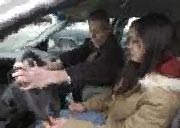If that's true, I hope that much of the learning was subliminal. Being on the far side of middle age, my list of kindergarten-learned items is pretty short. Stand in line and be quiet. Sit up straight in your chair and be quiet. Walk, don't run, when you're indoors and be quiet. Winning at the "quiet game" earns you the privilege of going to the restroom first so be quiet.
Establishing a sense of order and quiet seems to be a common theme - at least in my recollection. And I readily admit that what I learned in kindergarten about being a law-abiding citizen was an important lesson. It makes me think that there are other places where we learn "all we need to know" about some specialized area.
For example, talking with my father about theology one day, he said, "It's real simple to me. I try to interpret scripture and life through my view of 1 Corinthians 13 and its instruction on what love should look like." As an engineer who built highways his entire working life, Dad is all about finding the shortest route between two points. And viewing the world through the lens of love is his way of identifying what is important and leaving the rest.
I think about that conversation often these days when I'm challenged by tough questions. While I often want to drill more deeply in some areas, it's reassuring to think back on Dad's advice to find a sure and firm foundation to stand on. All I need to know about approaching theology, I learned in a fifteen-minute conversation with my father.
My career is in conflict resolution. My job, in part, is to intervene in disputes and misunderstandings in the lives of individuals and organizations. On a higher plane, my responsibility is to help others learn how to personally deal with conflicts wherever they find them.
I was contemplating the educational aspect of my job as I drove back to my office from a meeting where conflict had surfaced. Despite my best efforts, I couldn't get through to one of the combatants the basic concept of living in harmony with others. "Surely," I thought, "there is a common place we can go where we could learn everything we need to know about conflict resolution."
About that time, an old and battered car lurched into my lane from a side street. I slammed on my brakes and entertained some unlovely thoughts about the driver of that vehicle. And then repented. As Preacher Mike has repeatedly said in his lessons on civility, the given name of sixty percent of the drivers in our fair city simply could not be "Idiot."
As I internally retracted my statements, it struck me that I had just encountered conflict and had responded in much the same way as the misbehaving party did in my earlier meeting. As anxiety and anger began to fade, I realized that there was a place where we learn all we need to know about conflict resolution - Driver's Ed.
I'll return to this idea in later articles. Time and space won't allow me to unleash an entire driving manual here. But let's start with the first important lesson from my beloved driving instructor, Coach Bowe:
YOU CAN'T CONTROL THE DRIVING OF OTHERS. YOU ARE ONLY RESPONSIBLE FOR THE SAFE OPERATION OF YOUR OWN VEHICLE.
I recall my early days behind the wheel of my mom's car. Every rule of the road was centered on my actions and reactions to those around me. And every detail pointed to my responsibility in any given driving situation.
I didn't think in terms of what my rights were as a driver. My every effort was centered on making sure that I didn't do something that caused a problem for others. And that when others drove recklessly, I remain calm and drive in a way that would improve the situation for everyone - even the offending motorist.
I have a personal responsibility to bring peace to any conflict situation. In Matthew 18:15-35, Jesus tells us that when someone has done something offensive to us, it's our job to go to them and try to reconcile. In the Sermon on the Mount in Matthew 5:21-26, he tells us that it is also our responsibility to go and be reconciled if we offended others or even if the other person simply perceives that we've offended them.
This is called personal responsibility. We demand it when we grant a license to drive. We even insist that our drivers carry liability insurance to cover their own mistakes.
Too bad all of life isn't approached in the same way.
Are you ready to accept your personal responsibility in the conflicts that invade your life? If you are, God has already paid the premium on the liability insurance. He just asks that you deal with others as he has dealt with you!
Don't use foul or abusive language. Let everything you say be good and helpful, so that your words will be an encouragement to those who hear them. And do not bring sorrow to God's Holy Spirit by the way you live. Remember, he is the one who has identified you as his own, guaranteeing that you will be saved on the day of redemption. Get rid of all bitterness, rage, anger, harsh words, and slander, as well as all types of malicious behavior. Instead, be kind to each other, tenderhearted, forgiving one another, just as God through Christ has forgiven you. (Ephesians 4:29-32 NLT)











Comments
Have thoughts on this article? Leave a comment